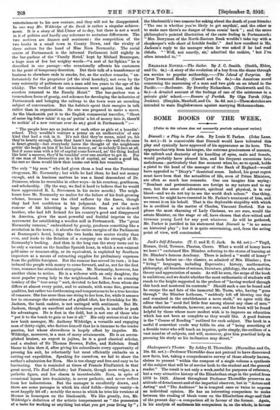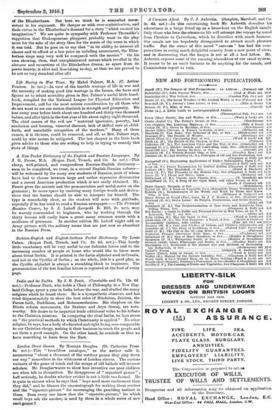Shakespeare's Theater. By Ashley H. Thorndike. (Macmillan and Co. 10s.
6d. net.)—Professor Thorndike does not pretend to have discovered new facts, but, taking a comprehensive survey of those already known, claims to present " within the compass of a single volume a synthesis of the subject that will be of service both to the student and the general reader." The result is not only a work.useful for purposes of reference, but a very attractive history of the Elizabethan stage in the period from 1576 to 1625. Almost throughout Professor Thorndike preserves an attitude of detachment and of the impartial observer, but in "Actors and Acting" and "The Audience" he is tempted one° or twice to express an individual opinion. He has an interesting comparison to make between the reading of blank verse on the Elizabethan stage and that of the present day—a comparison all in favour of the former. Again, in his analysis of audiences his comparison is, on the whole, in favour of the Elizabethans. But here we think he is somewhat incon- sistent in his argument. He charges us with over-sophistication, and finds virtue in the Elizabethan's demand for a story "which excited his imagination." We are quite in sympathy with Professor Thomdike's suggestion that Shakespearean playgoers probably went to the play more for'the sake of the story than for the music of the verse in which it was told. But he goes on to say that " in its ability to interest all classes and to afford at a low price an unfailing amusement, the Elite- bethan stage may very well be compared with the movies." On his own showing, then, that unsophisticated nature which revelled in the alarums and excursions of the Elizabethan drama, as apart from its poetic beauty, is alive and flourishing to-day, so that we are proved to be not so very decadent after all!































 Previous page
Previous page